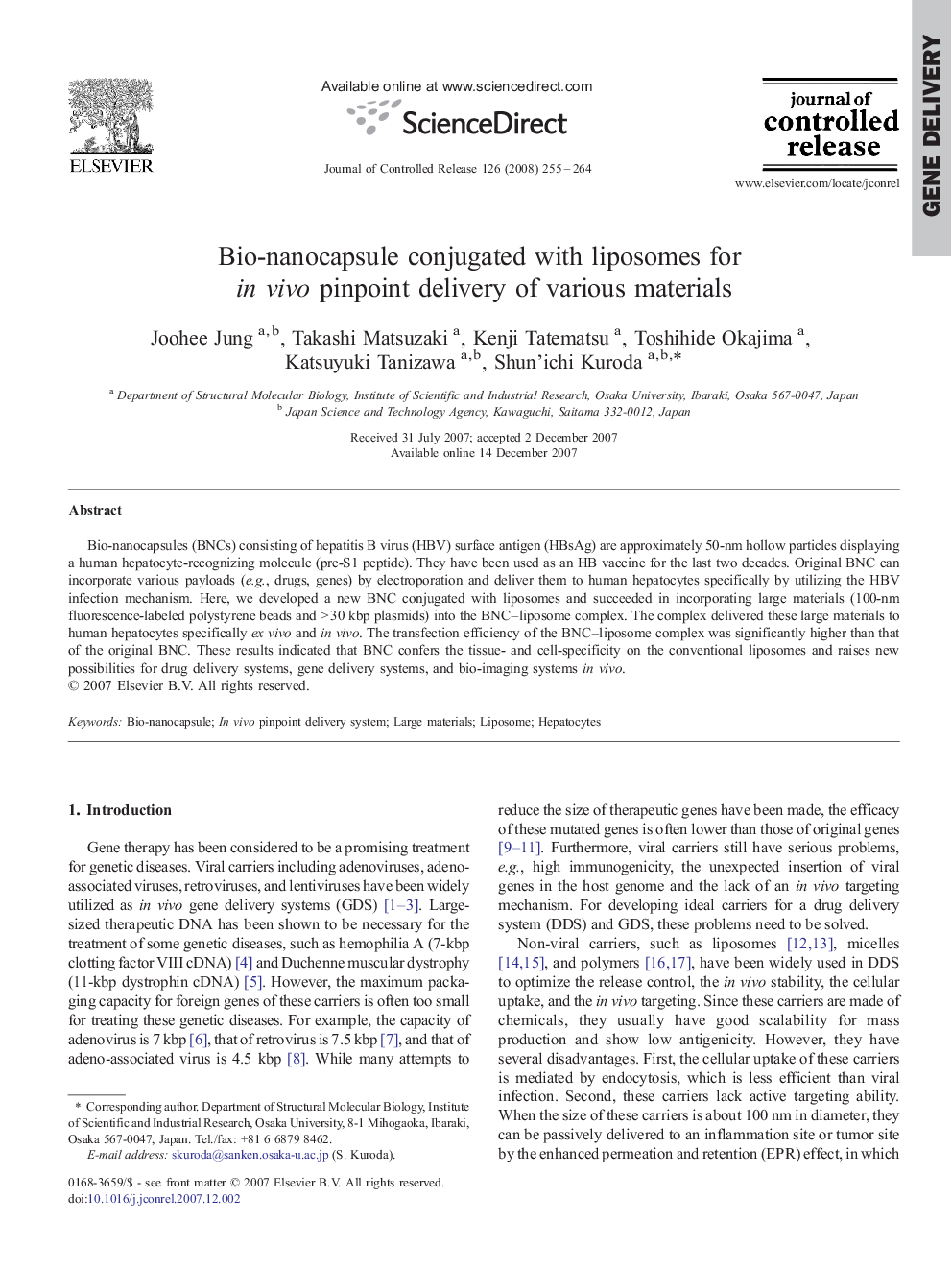| Article ID | Journal | Published Year | Pages | File Type |
|---|---|---|---|---|
| 1426793 | Journal of Controlled Release | 2008 | 10 Pages |
Bio-nanocapsules (BNCs) consisting of hepatitis B virus (HBV) surface antigen (HBsAg) are approximately 50-nm hollow particles displaying a human hepatocyte-recognizing molecule (pre-S1 peptide). They have been used as an HB vaccine for the last two decades. Original BNC can incorporate various payloads (e.g., drugs, genes) by electroporation and deliver them to human hepatocytes specifically by utilizing the HBV infection mechanism. Here, we developed a new BNC conjugated with liposomes and succeeded in incorporating large materials (100-nm fluorescence-labeled polystyrene beads and > 30 kbp plasmids) into the BNC–liposome complex. The complex delivered these large materials to human hepatocytes specifically ex vivo and in vivo. The transfection efficiency of the BNC–liposome complex was significantly higher than that of the original BNC. These results indicated that BNC confers the tissue- and cell-specificity on the conventional liposomes and raises new possibilities for drug delivery systems, gene delivery systems, and bio-imaging systems in vivo.
